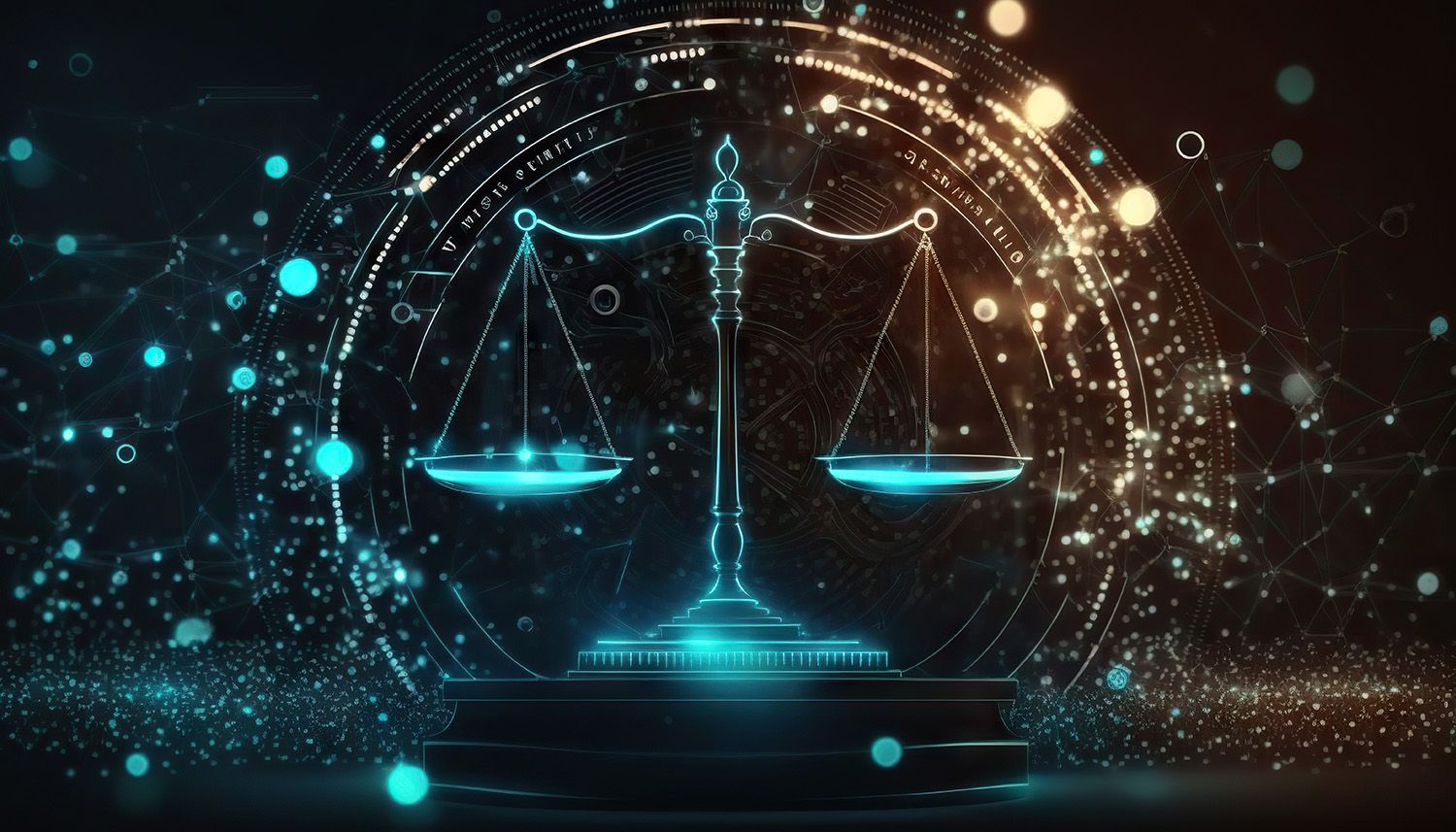FEATURE ARTICLE: The Dangerous Client
Author: Professor Michael H. Hoeflich, PhD, Editor-in-Chief
Legal Editor: Carrie E. Parker
This article is featured in Volume 6, Number 3 of the Legal Ethics and Malpractice Reporter, published March 31, 2025.
The practice of law is not ordinarily considered to be a particularly dangerous or risky profession, but crime against lawyers and law firm personnel is an unfortunate reality. Furthermore, lawyers may reasonably believe that legal ethics rules prohibit them from reporting such crimes or providing sufficient information to law enforcement authorities regarding those crimes. This is an intolerable situation. Thankfully, the American Bar Association Standing Committee on Legal Ethics and Professional Responsibility issued Formal Opinion 515 on March 5, 2025, in an attempt to ameliorate this situation.
Opinion 515 recognizes that lawyers may fall victim to clients’ criminal acts in multiple ways including physical violence or by financial crimes. It also recognizes that the general rule of client confidentiality of Rule 1.6 may suggest the lawyer is unable to share information pertinent to reporting, investigating, and prosecuting a client’s criminal conduct. It ultimately concludes, however, that there is an implicit exception to Rule 1.6 when a lawyer is a victim of a client’s crime or someone associated with the lawyer or related to the lawyer is a victim of the client’s crime and the lawyer is a witness to that crime.
Model Rule of Professional Conduct 1.6(a) states that “A lawyer shall not reveal information relating to the representation of a client unless the client gives informed consent, the disclosure is impliedly authorized in order to carry out the representation or the disclosure is permitted by paragraph (b).” Formal Opinion 515 considers the enumerated exceptions and analyzes whether they provide sufficient authority for a lawyer to disclose a client’s crimes against her. It is important to note, however, that there is great variation amongst states and the Model Rule as to exceptions to the general rule of confidentiality. Model Rule 1.6(b) states seven exceptions:
(1) to prevent reasonably certain death or substantial bodily harm;
(2) to prevent the client from committing a crime or fraud that is reasonably certain to result in substantial injury to the financial interests or property of another and in furtherance of which the client has used or is using the lawyer’s services;
(3) to prevent, mitigate or rectify substantial injury to the financial interests or property of another that is reasonably certain to result or has resulted from the client’s commission of a crime or fraud in furtherance of which the client has used the lawyer’s services;
(4) to secure legal advice about the lawyer’s compliance with these Rules;
(5) to establish a claim or defense on behalf of the lawyer in a controversy between the lawyer and the client, to establish a defense to a criminal charge or civil claim against the lawyer based upon conduct in which the client was involved, or to respond to allegations in any proceeding concerning the lawyer’s representation of the client;
(6) to comply with other law or a court order; or
(7) to detect and resolve conflicts of interest arising from the lawyer’s change of employment or from changes in the composition or ownership of a firm, but only if the revealed information would not compromise the attorney-client privilege or otherwise prejudice the client.
KRPC Rule 1.6(b) is rather different. It permits the revelation of information relating to representation of a client to the extent a lawyer reasonably believes necessary:
(1) To prevent the client from committing a crime;
(2) to secure legal advice about the lawyer’s compliance with these Rules;
(3) to establish a claim or defense on behalf of the lawyer in a controversy between the lawyer and the client, to establish a defense to a criminal charge or civil claim against the lawyer based upon conduct in which the client was involved, or to respond to allegations in any proceeding concerning the lawyer’s representation of the client;
(4) to comply with other law or a court order; or
(5) to detect and resolve conflicts of interest arising from the lawyer’s change of employment or from changes in the composition or ownership of a firm, but only if the revealed information would not compromise the attorney-client privilege or otherwise prejudice the client.
Missouri Rule 4-1.6(b) permits revelation under the following circumstances:
(1) to prevent death or substantial bodily harm that is reasonably certain to occur;
(2) to secure legal advice about the lawyer’s compliance with these Rules;
(3) to establish a claim or defense on behalf of the lawyer in a controversy between the lawyer and the client, to establish a defense to a criminal charge or civil claim against the lawyer based upon conduct in which the client was involved, or to respond to allegations in any proceeding concerning the lawyer’s representation of the client;
(4) to comply with other law or a court order; or
(5) to detect and resolve conflicts of interest arising from the lawyer’s change of employment or from changes in the composition or ownership of a firm, but only if the revealed information would not compromise the attorney-client privilege or otherwise prejudice the client.
Opinion 515 correctly notes that few of the Model Rule’s exceptions will help in a situation in which a client has acted criminally against a lawyer. Model Rule 1.6(b)(1) might be useful in the case where the client’s actions open the possibility of causing death or substantial bodily harm. Kansas, however, has a much different version, only permitting disclosure to prevent future crimes, a version that will most likely be even less useful in these situations.
Model Rule 1.6(b)(3) also may provide some help, but, again, in very restricted circumstances. It states, in part, “to the extent the lawyer reasonably believes necessary . . . to prevent, mitigate or rectify substantial injury to the financial interests or property of another that is reasonably certain to result or has resulted from the client’s commission of a crime or fraud in furtherance of which the client has used the lawyer’s services.” Obviously, the most serious impediment to using this exception is that it speaks of harm to others, apparently excluding client actions that would harm the lawyer. KRPC 1.6(b) has no analogue to Model Rule 1.6(b)(3) so even the limited help the Model Rule might provide would be unavailable in Kansas. Similarly, Missouri Rule 4-1.6(b) lacks a version of that Model Rule exception.
The last specific exception the opinion considers is Model Rule 1.6(b)(5):
to establish a claim or defense on behalf of the lawyer in a controversy between the lawyer and the client, to establish a defense to a criminal charge or civil claim against the lawyer based upon conduct in which the client was involved, or to respond to allegations in any proceeding concerning the lawyer’s representation of the client.
Both the KRPC and the Missouri Rules have similar exceptions, KRPC 1.6 (b)(3) and MORPC 4-1.6(b)(3). Unfortunately, all three versions of this exception are of very limited utility since they would apply only in the case of civil litigation by the lawyer, which would be too little, too late. As Opinion 515 says, “the exception would not justify initially reporting to law enforcement authorities, since a criminal investigation or prosecution is not a controversy between the lawyer and the client.”
The opinion explores when, if ever, the person harming a lawyer would not be deemed to be a client or prospective client under Rule 1.18 and, therefore, not enjoy the confidentiality provided under Rule 1.6, 1.9, and 1.18:
Whether a person is a “client” for purposes of Rule 1.6 and other professional conduct rules is governed by law outside the professional conduct rules, on which this Committee does not ordinarily opine. But we note that contract law, which ordinarily determines whether a client- lawyer relationship was formed, supports the proposition that the formation of such a relationship requires the person to have a good faith intention of seeking legal services from the lawyer.
Using similar reasoning, the opinion advises that a purported client would not be considered a client. Additionally, the opinion points out that not all information will be information “relating to the representation” and, therefore, protected by Rules 1.6, 1.9, and 1.18.
Unfortunately, even though the 1.6(b) exceptions provide some arguments for lawyers eager to disclose a crime, it is not enough to solve the problem. As a result, the ABA Committee goes on to argue for an “implicit” exception to Rule 1.6(a) not specifically enumerated in Rule. 1.6(b):
In considering the situation in which a lawyer is a victim of a client’s crime, the Committee finds interpretive guidance in the Scope section of the Model Rules which observes: “The Rules of Professional Conduct are rules of reason. They should be interpreted with reference to the purposes of legal representation and of the law itself.” Lawyers might readily assume that, if a client commits a crime against them or their employees or associates, they can report the crime to law enforcement authorities and appropriate others, notwithstanding the confidentiality duty under Rule 1.6(a). The Committee concludes that they would be correct, even though, in many situations, no express exception to the confidentiality duty will apply. That is because, in this situation, the Committee believes an implicit exception applies.
(emphasis added).
Although the ABA Committee is willing to announce this implied exception to Rule 1.6(a), it does so with caution:
It bears emphasis that lawyers are not free to disregard the Rules whenever they conclude that the purposes underlying the Rules are not being served. Rules may legitimately apply more broadly than necessary to serve their underlying purposes, for example, because the Rule drafters want lawyers to steer far clear of the lines, or because it is necessary to draw a bright line rather than employ an imprecise standard. What makes applying Rule 1.6(a) unreasonable here is that doing so serves no good purpose and would cause affirmative harm that seemingly was not contemplated by the Rule drafters, who, as far as we are aware, did not specifically consider the problem of clients’ crimes against their lawyers.
… The implicit exception limits what information relating to the representation may be disclosed. A lawyer may disclose information about the client’s crime against the lawyer to the extent reasonably necessary to permit the relevant authorities to investigate and possibly prosecute the crime, or for the lawyer to seek other services like medical care, restitution, or another reasonably necessary remedy or redress. A lawyer may also disclose information for such purposes when someone associated with the lawyer or related to the lawyer is a victim of the client’s crime and the lawyer is a witness to that crime. But this does not mean that the lawyer may disclose unnecessary or unrelated details of the representation.
(emphasis added).
In a final paragraph, the opinion deals with the aftermath of the case when a client has committed a crime against a lawyer and the lawyer has used the implicit exception to Rule 1.6:
Finally, we note that a client-lawyer relationship almost certainly cannot continue after the client victimizes the lawyer or someone associated with the lawyer or related to the lawyer and the lawyer reports the client’s crime pursuant to an exception to the duty of confidentiality under Rule 1.6, whether express or implied. The lawyer will ordinarily have an obligation under Rule 1.4 to inform the client that the disclosure will be, or was, made. If the client then discharges the lawyer, the lawyer must withdraw from the representation under Rule 1.16(a)(3). Likewise, the lawyer must withdraw if the crime and ensuing disclosure have created a conflict of interest that materially impairs the lawyer’s ability to represent the client competently. Indeed, it is hard to imagine a scenario in which a lawyer who is actively seeking the prosecution of a client would not be materially impaired in the ability to competently represent the client. Even if withdrawal is not mandatory, the lawyer may elect to withdraw if, as is not unlikely, the client’s criminal conduct has made it unreasonably difficult to continue the representation.
This is extremely wise advice.
Formal Opinion 515 identifies and deals with an extremely important topic—one that goes to the safety and security of lawyers, their families, and their staff. Yet, while the opinion provides a reasoned analysis for creating an implied exception, it is not authoritative. Certainly, an opinion issued by the ABA Committee on Ethics and Professional Responsibility carries the weight of persuasion, but it is not binding on disciplinary authorities. Every jurisdiction should seriously consider adopting a new enumerated exception to Rule 1.6 based on Formal Opinion 515 and, thereby, assure the continued secure functioning of the legal profession.
READ THE FULL ISSUE OF LEMR, Vol. 6, No. 3
About Joseph, Hollander & Craft LLC
Joseph, Hollander & Craft is a mid-size law firm representing criminal defense, civil defense, personal injury, and family law clients throughout Kansas and Missouri. From our offices in Kansas City, Lawrence, Overland Park, Topeka and Wichita, our team of 25 attorneys covers a lot of ground, both geographically and professionally.
We defend against life-changing criminal prosecutions. We protect children and property in divorce cases. We pursue relief for clients who have suffered catastrophic injuries or the death of a loved one due to the negligence of others. We fight allegations of professional misconduct against medical and legal practitioners, accountants, real estate agents, and others.
When your business, freedom, property, or career is at stake, you want the attorney standing beside you to be skilled, prepared, and relentless — Ready for Anything, come what may. At JHC, we pride ourselves on offering outstanding legal counsel and representation with the personal attention and professionalism our clients deserve. Learn more about our attorneys and their areas of practice, and locate a JHC office near you.











